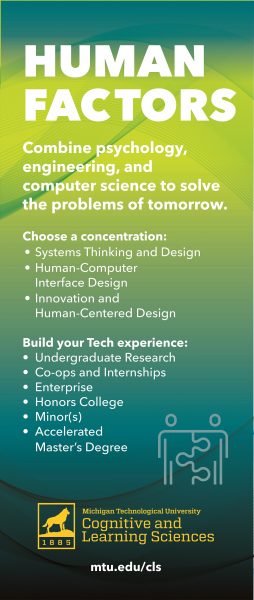The Department of Cognitive and Learning Sciences will host speaker Jeff Pettibone (Assistant Professor of Psychology at Finlandia University) at the next Applied Cognitive Science and Human Factors forum. The presentation, “Dopamine Dynamics in Adaptive Decision Making”, will be from 4:00 to 5:00 p.m. Friday (October 29) in Meese 109 and via Zoom.
Abstract: Adaptive decision-making relies on a distributed network of neural substrates that learn associations between behaviors and outcomes to ultimately shape and direct future behavior. These substrates are organized in a system of cortical-striatal loops that are hypothesized to offer unique contributions to motivated behavior. Midbrain dopamine neurons strongly innervate these regions, however the consequences of dopamine fluctuations at these targets remain largely unresolved despite aggressive interrogation. Some experiments have highlighted dopamine’s role in learning via reward prediction errors (RPEs), while others have noted the importance of dopamine in signaling distinct aspects of motivation. The data presented will describe the precise role of dopamine in shaping decision-making during a stochastically rewarded trial-and-error task in rats.




